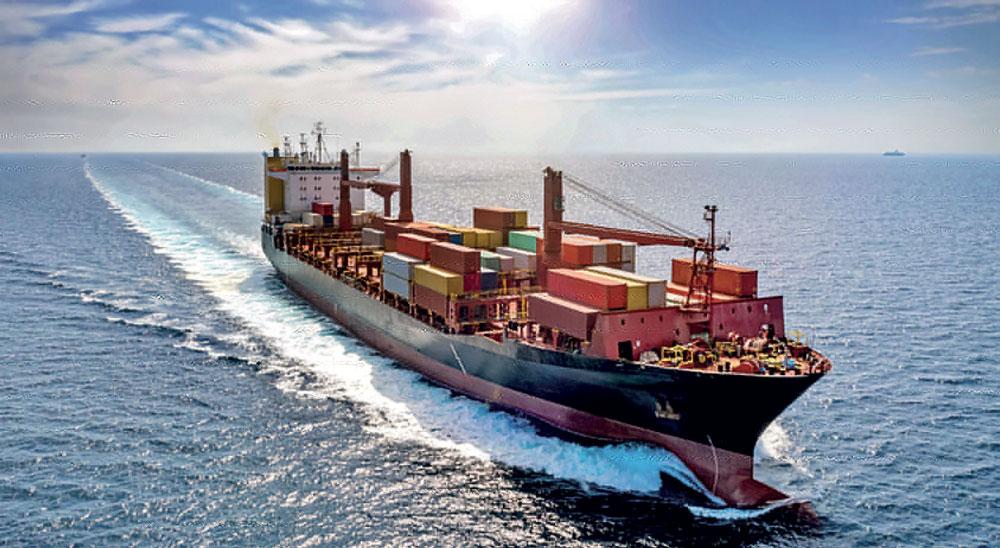Reply To:
Name - Reply Comment

By Sheain Fernandopulle
Every year on June 25th, the international community comes together to celebrate Seafarer Day, a momentous occasion that pays homage to the men and women who brave the world’s oceans to connect nations, transport goods, and sustain global trade.
The 2024 campaign focuses on disseminating crucial safety tips for seafarers, emphasizing their pivotal role in enhancing maritime workplace safety. Understanding the importance of these guidelines is paramount, as they not only safeguard individual lives but also contribute to the overall security of the maritime sector. Seafarers face unique challenges at sea, from unpredictable weather conditions to potential equipment malfunctions. By adhering to safety protocols and being vigilant, seafarers can mitigate risks and ensure smooth operations aboard vessels. Their commitment to safety not only protects themselves but also upholds the integrity and efficiency of global maritime transport. As we mark this campaign, let us reaffirm our support for seafarers and prioritize their well-being through continuous education, training, and access to essential safety resources.
History and evolution
The history of seafaring is as old as human civilization itself. From ancient mariners navigating by the stars to the sophisticated vessels and technologies of today, the journey of seafaring has been marked by innovation, exploration, and resilience. Early civilizations such as the Phoenicians, Greeks, and Chinese built impressive maritime networks that facilitated trade, cultural exchange, and the spread of ideas across vast distances.
During the Age of Exploration in the 15th and 16th centuries, seafaring underwent a transformative period. Pioneering explorers like Christopher Columbus, Vasco da Gama, and Ferdinand Magellan expanded the known world, opening up new trade routes and establishing global connections that laid the foundations for today’s interconnected world.
The Industrial Revolution further revolutionized seafaring with the advent of steam-powered ships, which replaced wind-driven vessels and greatly enhanced maritime transport capabilities. This era also saw the establishment of international maritime laws and regulations, ensuring safer and more organized global shipping practices.
Modern challenges and innovations
In the modern era, seafaring faces a new set of challenges and opportunities. Climate change, piracy, and geopolitical tensions pose threats to maritime security and operations. However, advancements in technology, such as GPS navigation, satellite communications, and automated cargo handling systems, have significantly improved safety, efficiency, and sustainability in the shipping industry. Moreover, digital transformation is reshaping the maritime sector, with innovations like blockchain technology enhancing supply chain transparency and efficiency. Autonomous vessels are on the horizon, promising to revolutionize shipping by reducing human error and optimizing fuel consumption.
The role of seafarers today
Seafarers remain the cornerstone of global trade and maritime transport. These skilled professionals work tirelessly aboard merchant ships, tankers, and container vessels, often spending months away from home to ensure goods reach their destinations safely and on time. Their dedication and expertise are essential for maintaining the flow of goods that sustain economies and livelihoods worldwide.
Seafarer Day 2024 celebrates the invaluable contributions of these maritime professionals and raises awareness about the challenges they face. Issues such as crew welfare, mental health, and fair labor practices are increasingly prioritized to ensure the well-being and rights of seafarers are upheld.
Global recognition and initiatives
The International Maritime Organization (IMO), a specialized agency of the United Nations, plays a crucial role in promoting maritime safety, security, and environmental protection. Through initiatives like World Maritime Day and Seafarer Day, the IMO fosters international cooperation and dialogue on key issues affecting the maritime industry.
National governments, industry stakeholders, and non-governmental organizations also play active roles in supporting seafarers and advancing maritime interests. Programs focusing on education and training, career development, and welfare services contribute to the professional growth and well-being of seafarers around the world.
Looking ahead: Towards a sustainable maritime future
As we commemorate Seafarer Day 2024, it is imperative to reflect on the future of seafaring and maritime sustainability. The industry is increasingly embracing green technologies and practices to reduce carbon emissions, minimize environmental impact, and promote sustainable shipping practices. Initiatives such as the IMO’s greenhouse gas reduction strategy and the development of alternative fuels underscore the commitment to a more sustainable maritime future.
Furthermore, promoting gender equality and diversity within the maritime workforce is essential for fostering innovation and inclusivity. Efforts to attract more women and young people to careers in seafaring through scholarships, mentorship programs, and awareness campaigns are gaining momentum, ensuring a diverse talent pool for the future.
In conclusion, Seafarer Day 2024 serves as a poignant reminder of the indelible mark seafarers have left on human history and the pivotal role they continue to play in shaping our globalized world. As we celebrate their dedication and resilience, let us reaffirm our commitment to supporting seafarers, advancing maritime safety and sustainability, and embracing the challenges and opportunities that lie ahead. Together, we can navigate towards a prosperous and sustainable maritime future, honoring the timeless legacy of those who sail the seas.